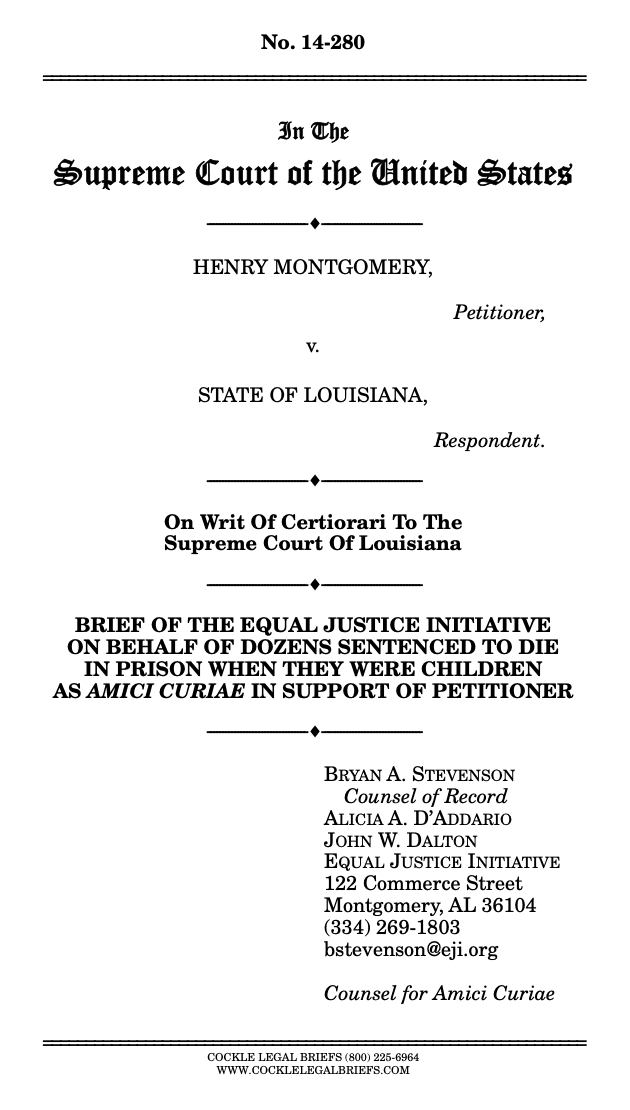
Summary of Argument
This Court’s determination in Miller v. Alabama, 132 S. Ct. 2455 (2012), that it is cruel and unusual to impose a mandatory life-without-parole sentence on a child under the age of 18 must be applied retroactively to all cases where that punishment has been imposed. Miller categorically prohibited an automatic life-without-parole sentence for an entire class of criminal defendants: those who were “under the age of 18 at the time of their crimes.” Id. at 2460. As such, it is a substantive rule. Miller is no different than the Eighth Amendment precedents on which it relied, which have universally been applied retroactively because the determination that a punishment is cruel and unusual is inexorably a substantive one.
This Court can and should find that Miller is retroactive in this case because this Court unquestionably has jurisdiction here. The Louisiana Supreme Court explicitly relied only on federal law in reaching its determination that Miller is not retroactive and that is sufficient for this Court’s review. But even if Louisiana had purported to rely on state law, state courts cannot, consistent with basic norms of constitutional adjudication, refuse to provide a remedy for constitutional violations that fall within Teague’s exceptions.
Open Amicus Brief as PDF